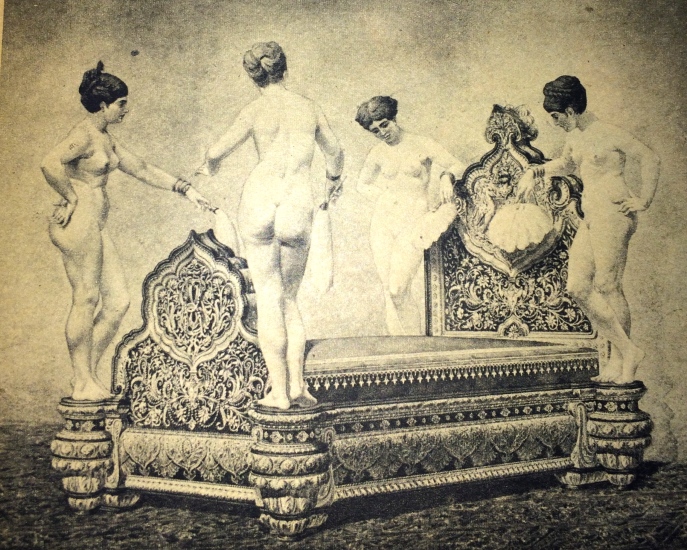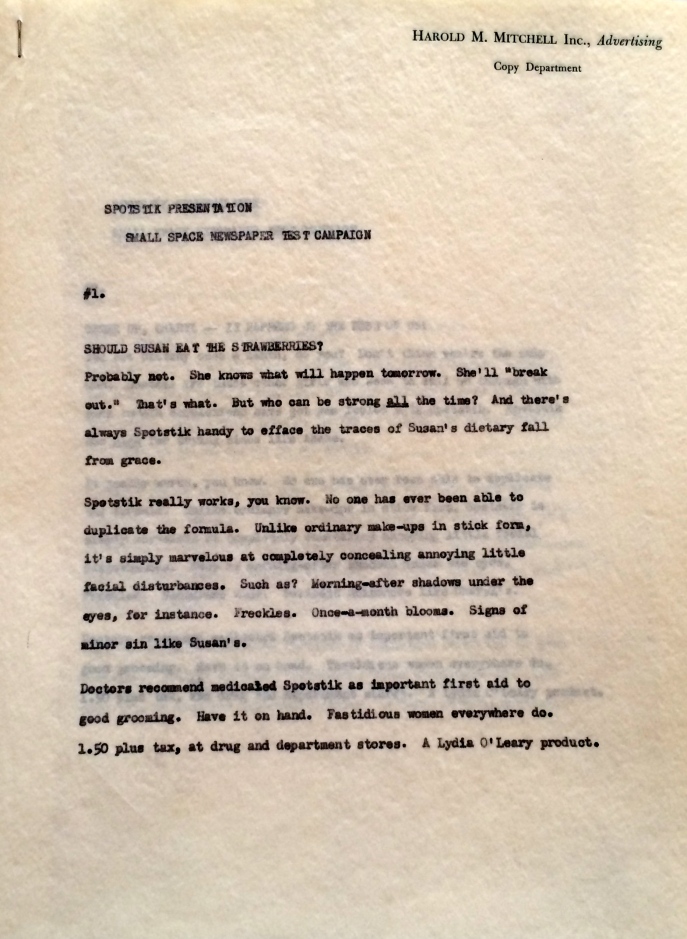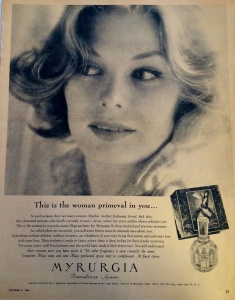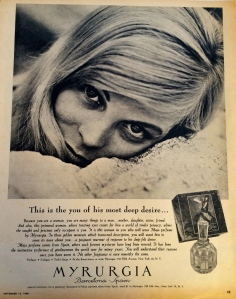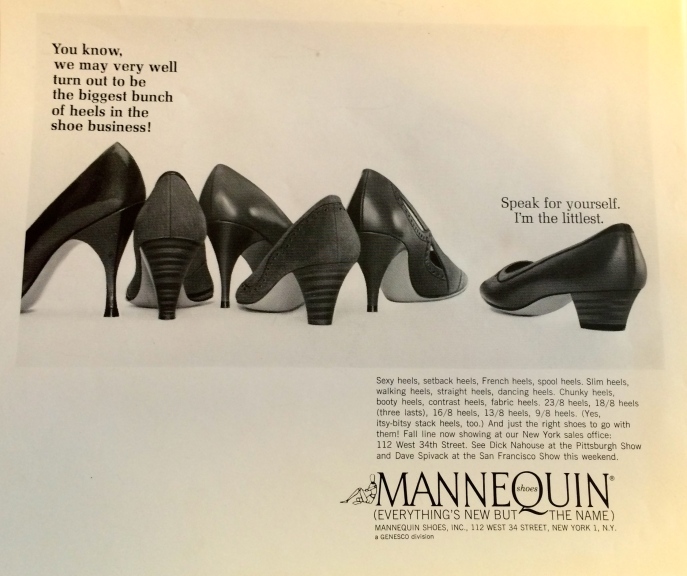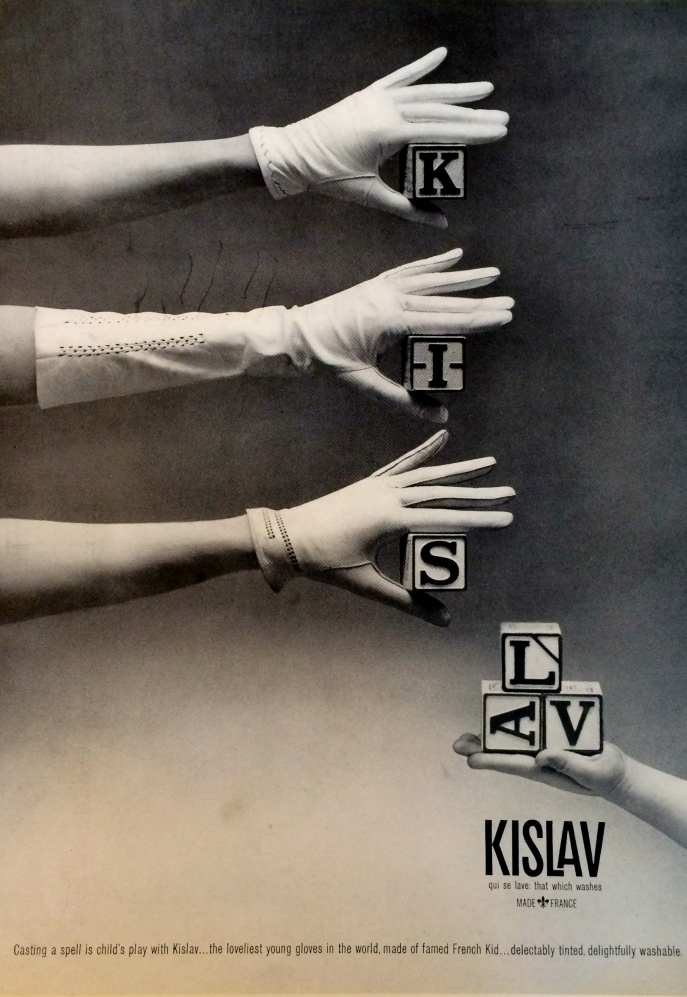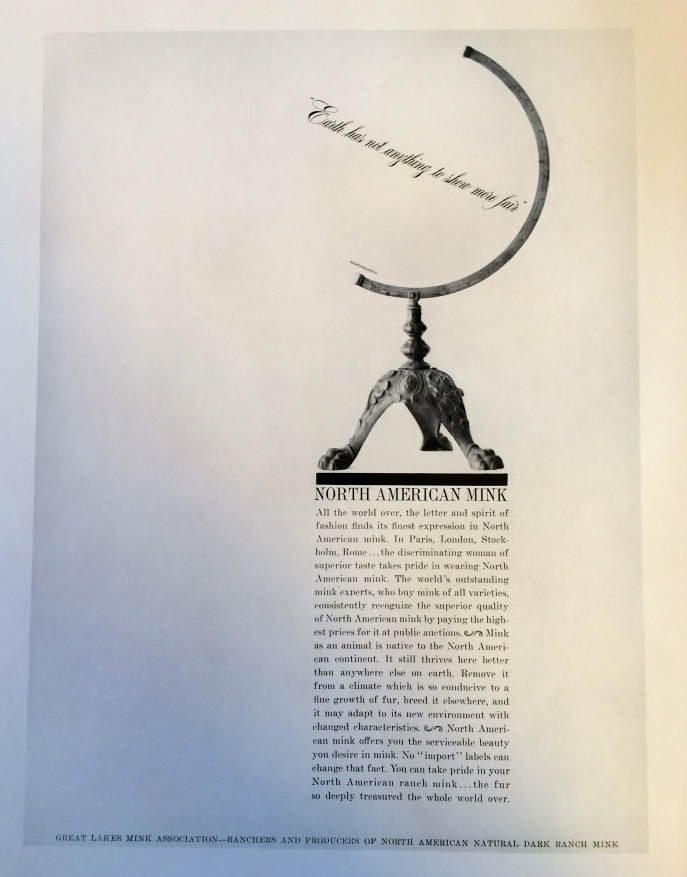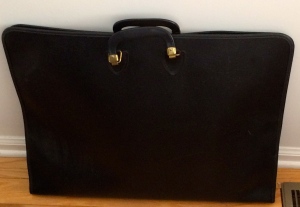[For earlier posts about my adventures in late 1950’s-early 1960’s advertising, see “How My Life as a Mad Woman Began,” and “Ad Biz Follies (#1), (#2) and (#3.)]
During the nearly three years Ed and I had been in New York, I had no discretionary money at all. We did own a joint savings account, consisting mainly of the sale proceeds of my many college and graduate school books and also of the good used furniture my parents had given us for beginning married life. But we had agreed neither of us would touch that money. Moreover, I wasn’t entirely sure where we had stashed the bankbook. As for my salary, once I began paid work at Gilbert Advertising in January 1958, I used to hand over all of it, less five dollars a week for transportation to and from work. At first it never occurred to me not to. After all, Ed had been managing the money and paying the bills since we married. And we barely squeaked by as it was.
In the beginning, of course, he’d been working too, so the money he managed came from both of us. But now, although I had become the only breadwinner, he remained the money manager. Every Saturday, he would hand back thirty dollars just before I trundled the shopping cart off to the A&P for the weekly marketing; unfortunately, it all went on necessities, almost down to the penny.
Then things at home became increasingly unpleasant. (More detail might darken this light-hearted account of advertising nonsense were we to tiptoe down that path so we won’t, at least not here.) I may still have clung to the belief marriage was supposed to be forever, but I did finally acknowledge to myself I needed some ready cash Ed didn’t know about. Not necessarily to do anything with. Just in case. Unfortunately, my relaxed months at Harold M. Mitchell, Inc. Advertising for $6,500 a year (see #3 in this series) provided no wiggle room for putting something aside.
I was therefore pleased to receive a whispered call at work from an employment agent at Jerry Fields, the mega guru of “creative” placements in Madison Avenue’s ad world. (The term “creative” in the ad-speak of the time meant copywriters and art directors, and was not necessarily descriptive of the quality of their product.) The agent had heard of something for me at a place called Leber & Katz. More later. “Heard of something?” What did that mean?
A second whispered call soon came from an excited Judy F., formerly with Jerry Fields but now branching out on her own. There was a perfect opening for me at Leber & Katz! She had Lester Leber on the other line and could she make an appointment for me to to interview with him that very evening? Innocent little girl. (Me, not Judy F.) Even if Lester Leber had turned me down, I would have been in trouble. He didn’t. I lied about the salary Harold was paying me — I was beginning to learn how things were done — and Lester offered $8,500. When could I start? How could I refuse?
You’d think I’d been Edward Snowden. Jerry Fields himself was on the line the very next day. He didn’t whisper. How could I violate the basic rule of agency placements when he had been so good to me? (I’d never met or spoken with him.) He mentioned trust. Honor. Principle. It didn’t quite get to “You’ll never work in this town again!” but came close. What he was really upset about, of course, was the commission for the placement. Leber & Katz was going to pay Judy F. for sending me to them, even though their name had first been mentioned to me by a Jerry Fields agent.
I apologized. I pleaded. I said I was new to New York and its ways. I pointed out timidly that the Jerry Fields agent hadn’t actually gotten me an interview. I even asked if I should turn down the job offer. No, no, he didn’t want that. (God forbid Leber & Katz should hear of behind-the-scenes scuffling by employment agents.) The upshot was a stern warning. I must never, ever, do such a thing again. And then came what I didn’t realize might have been a warning of another kind: Jerry Fields himself wished me good luck at L&K. Did he know something I didn’t?
What he knew, or suspected, was that Leber & Katz did not yet have any need for me at all. Once I arrived at their (to me) sumptuous Madison Avenue premises in a building with a Longchamps restaurant on the ground floor, I too was at a loss as to why I had been hired. Was it because they felt they should fill the one empty office remaining along the square perimeter surrounding a luxurious conference room and, on the other side, an impressive paste-up department? Was it because they had grandiose plans for growth and needed to present themselves as a place with two art directors, two account executives and two copywriters, even though the second copywriter was simply waiting around for something substantive to do? Or was it that Lester — the copywriter at the firm — had been to Columbia College and thought on meeting me that if all went well for the agency a well-educated young lady like me might be a good fit?
The firm certainly did go on to become very large indeed. Shortly after we parted company, Lester and his partner Stanley Katz “exchanged” their third partner, the man who managed the office and who I knew as Norman, for Onofrio Paccione, a high-powered art person from Grey Advertising known throughout the industry as “Patch,” a tough guy to work for. They then became, for a time, Leber Katz Paccione. Subsequently, as their billings grew (and Patch departed, perhaps for greener fields) — they were Leber Katz Partners, with billings reported to be as high as $550 million by 1986, at which time they merged with (or were gobbled up by) Foote Cone & Belding Communications in Chicago and were known thereafter as FCB/Leber Katz Partners. Musical chairs on a multi-million-dollar scale. But I was not involved in any of that. Just thought you’d like to know where they were headed.
The fact is that when I arrived in late June 1960 I had nothing much to do in my new place of employment. There was still some fashion copy to write for ads already photographed, freeing up Lester to join Stanley in chasing the big packaged goods accounts that would eventually disentangle them from fashion sold in department stores and enable profits to metastasize. But it didn’t take me long to produce the minimal verbiage required to accompany gorgeous photos or to explain, briefly, why a consumer should want to buy something for which she had no real need. As in:

WHOEVER YOU ARE, be unscrupulous. Connive. Pretend to the wealth of a princess with Marvellissimo, Marvella’s precisely simulated pearls of genuine brilliance. Who’d suspect such cunning — from a lovely charmer like you? Triple-strand necklace, with stone-set clasp of semi-precious Carnelian, Lapis, or Jade Quartz, $22.50. Ta-da, ta-da, ta-da, etc. At the finest stores.

The Understanding Mother knows that “Littlest Angel,” the bra that expands as a girl develops, belongs in her daughter’s wardrobe. A beTween ager may still be “flat on top” but need the emotional reassurance of a bra. Teenform helps you say, “Mother understands.” TEENFORM, Specialists For The Formative Years.
I spent a lot of time trying to read Proust in the women’s bathroom with my feet up so no one looking for me could recognize my shoes by peering beneath the door of the toilet stall. That seemed better than sitting in my office with the door open doodling on a pad, or reading Proust openly, even with a pencil in my hand.
There was also some time-consuming flirting with Stanley. He was then thirty-nine, a husband and father of three or four, and owner in fee simple of a nice suburban home in West Orange, New Jersey. He was also the partner who would invite me to sessions in the conference room to plan strategy for presentations to big-name potential clients. I had very little to contribute to these pow-wows, other than to look interested (and perhaps attractive to Stanley), take notes and pass the centerpiece platter of fruit around the table.
After one of these meetings, I found on my desk the next morning a line drawing in pencil, initialed SK, of a male figure reclining on a chaise longue with a female figure feeding him grapes from a bunch dangling from her hand over his mouth. I knew the reclining figure was supposed to be Stanley by the round eyeglasses. Also it was slightly plump (as he was). The female figure wore a suit like mine the day before. If I’d had more work to do, I might have tabled a response in favor of more pressing matters. As it was, I impulsively scrawled, “Yes!” on the drawing, folded it into an envelope and, since he was out of the office, handed it back, sealed, to his secretary.
I still don’t know if she opened it before putting it on his desk. The next drawing that appeared in my office was of an open-mouthed baby’s face; the baby had one tuft of hair coming up off its head, one tooth in its mouth, and one tear on its cheek. Block-printed beneath the face was a single word, “Sorry.” After that, Stanley scrupulously avoided me. No more invitations to strategy pow-wows. (Had I made him feel like such a baby?) And since we had no business reason to be together, I guess that pretty much took care of temptation for him. As for me, I hadn’t really been tempted in the first place, except that the flirting had been something interesting to do. Roundish, owl-eyed and with thinning yellow hair — even if relatively powerful — wasn’t exactly my type. So you might say there was no harm done. You’d be wrong.
Popular wisdom to not mess around in the office wouldn’t have survived as long as it has if there weren’t more than a kernel of truth in it. When Norman, the third partner, decided at the beginning of 1961 that I had not been a cost-effective investment since Lester didn’t really need me, only Stanley could have saved me. Of course, he didn’t. But — as Parolles, the messenger, declared in All’s Well That Ends Well — I am there before my legs.
Despite such tomfoolery, my “employment” at Leber & Katz accomplished two very important things for me, neither connected with career advancement.
(1) With my first L&K weekly pay envelope, I opened a savings account in my own name at a bank near the office. All it took was $25. I could hide this much money from Ed by “explaining” that the rate of social security withholding was much higher at my new salary than it had been before. As he himself had never earned $8,500 a year, he believed me. Thus, every week after that, while matters continued to go south at home, I was able to put away another $25. By November of 1960, I would have $500 all my own. Enough finally to flee.
(2) I met Serge, the manager of Christofle Silver, a new Leber & Katz account that arrived at the agency in August 1960. The Christofle showroom was on the third floor of a townhouse at 55 East 57th Street that already housed Limoges china on the ground floor and Porthault linens on the second. The company had therefore come to L&K on the recommendation of the manager of Limoges, for which Lester managed some minimal advertising.
Neither Stanley nor Lester spoke French. I still could. (Much better than I do now.) There was therefore no question in their minds that I should be at the initial meeting with the daughter and son of the owner, both soon to return to France, and with Serge, who would remain in New York. (This was before the line drawings of grapes and the one-tooth baby.) My presence probably wasn’t necessary as Serge, at least, was perfectly bilingual (with a charming French lilt), having recently acquired a degree from the London School of Economics.
Born in Paris and therefore thoroughly French, he nevertheless had Polish grandparents and was a Polish Baron, a title of absolutely no use anywhere except to get last minute reservations at posh New York restaurants. He was therefore a problem to the Leber & Katz guys from the start. Lester thoughtfully called him “Sergei,” in honor of his Polish ancestry. Norman called him “Surge,” because Norman recognized no language but English. I pronounced his name the French way and became his favorite. There was also a quasi-private exchange of Shakespeare quotations across the conference table that had nothing to do with what the others were discussing but indicated to each of us that (a) we were both better educated than the others and (b) we both thought advertising was pretty silly. He insisted I be the copywriter on the account.
I’ve already written about Serge — although not extensively — as if he were fiction. (He is Andre de Renski in “Those Were the Days,” which is listed on the Fiction Page to the left. I should probably write more about him; I remember enough for a novella.) Serge sometimes does seem like fiction when I think of him now, but he was quite real, and still is. (According to Wikipedia, he remains alive and relatively well in France; he has written several French novels and now translates American he-man novels into French.) But what was significant about him then in terms of this particular story is that based on his request, Lester and Stanley turned him over to me. An art director named Art Rothenberg and I handled all the Christofle advertising as long as I was at the agency, and I alone was able to extract from him the overdue checks for services rendered. So in a way Serge kept me busy enough to prevent being let go by Norman until I had enough money to leave Ed — which was very important. That he courted me and I thought he might serve as a temporary stepping stone between husbands was also a factor in my decision to leave when I did, but is still another story.
So now we come to the bed at the top of the page. It was a sterling silver bed made by Christofle for an Indian maharajah in the mid-nineteenth century. Both Serge and his employers back in France wanted it in their inaugural ad in America. It was bad, bad American advertising (whatever its appeal had it run in France), but it was unusual. In fact, Christofle liked it so much it continued to appear even after I had parted company with Lester and Stanley. Here’s the ad, in all its glory, torn from the pages of the Times in 1961:
The prolix and troublingly coy copy read:
We trust you do not covet the unusual object below. It is not for sale. An Indian Maharajah commissioned it from us in the nineteenth century, and — as far as we know — passed it on to an heir. All that remains to us is its photograph, which we show you with some trepidation.
For, you see, we do not know you Americans very well, having arrived in your country only recently. In France we take such follies philosophically, with lifted eyebrow. But here, will you be shocked, or (as we hope) interested to learn that this so-called bed was wrought entirely of sterling silver. One thousand pounds of it, including the ladies.
When one reposed upon it, the ladies waved their fans while a music box concealed beneath the springs released the latest Offenbach can-cans from Paris into the Eastern night. (Who could sleep with such distractions?)
As we say, however, to each man his pleasure. And, since 1839, Christofle has been giving unalloyed pleasure to maharajahs, emperors, kings and people who wish to feel like kings. If it is really your pleasure that we make you another such bed, we shall do so.
A last word about the bed. We do take a certain bizarre satisfaction in having created it. For one must admit that it is unique — until such time as somebody orders another. And to be unique is highly characteristic of Christofle.
Is Christofle only for those persons on a maharajah’s annual stipend? By no means. On the next page you see a recent creation in which we take genuine pride. It is called “Duo” and it was designed for us by the noted Finnish artist, Tapio Wirkala. The six pieces are all of heavy silver plate. (Actually they contain more silver than many settings of sterling silver.)
There is now in America hollowware and flatware by Christofle in vermeil, gilded, sterling, and heavy silver plate patterns — all within the reach of every purse. (See below for names of the purveyors.) These lovely things will not be one-of-a-klind, bed-type possessions. But they will be a peerless pleasure, none the less.
And that is because, among the foremost silversmiths of the world, the name of Christofle itself is renowned as one of a kind. Those beautiful objets d’art which proudly bear this name are without parallel, anywhere. They are, quite simply, beyond compare.
A brochure containing illustrations and descriptions of the complete Christofle collection is available on request. Please enclose 25 cents to cover mailing expenses. Christofle Silver, Inc., Ffty-Five East Fifty-Seventh Street, New York 22, N.Y.
CHRISTOFLE Official Table Service to the Court of Kings
It goes without saying Art and I eventually talked Serge into doing something a bit more modern:
There was also a small space campaign for The New Yorker, captioned “eat, drink, and be very, very…with Christofle silver, official service to the courts of kings:”
Art used to take me along on the photography shoots for this campaign, which helped kill even more time. One of these shoots involved a delicious-looking roast chicken on a Christofle silver platter. To keep the chicken looking truly appetizing after its long hours under hot lights, it had been generously sprayed with lacquer and was therefore inedible. You hang around, you learn.
In January 1961, Norman let me go. (I had already left Ed in November, and was now on my own, with a legal separation to protect me from his appearing on my doorstep.) Norman said in my next job I should try to work harder. Norman said I was being fired for cause, so I wouldn’t be able to collect unemployment insurance. (And the agency wouldn’t have to pay its share of it.) I did try to defend myself; I’d done everything I’d been asked to do. Was it my fault all I’d been asked was to babysit Serge?
Spine stiffened by Stanley’s vote to get rid of me, Norman wasn’t buying any of that. He yielded just enough to concede they would give me good references if anyone asked. Norman didn’t know it, but his head would soon roll too — because the renowned Paccione was about to join up as third partner.
Dear readers, surely you’ve had enough. After I had spent four subsequent months at a stop-gap place much like Harold Mitchell, Inc. (but called Herrick Associates — the associates being Mrs. Herrick, daughter Herrick and son Herrick), Jerry Fields himself rescued me. By annoying him when I’d let Judy F. place me in a job, I had implanted myself firmly in his mind. He personally found me the last two agency spots that concluded my “ad biz” career. I spent two and a half years at each of them, my salary slowly climbing with each jump, waddling out of the last job married again and eight months pregnant. So you could say all these follies you’ve been reading about had served a purpose (other than maybe moving merchandise), at least for me.
But I would be remiss to conclude this series without showing you how the Leber & Katz rise to riches began in 1961, soon after I left. Unlike the ads for Serge, these print ads of theirs introducing Lowenbrau beer to the American public were really good examples of the genre. Although I wasn’t there to see for myself, I’m sure Lester and Stanley owed the successful Lowenbrau presentation and subsequent ad campaign to Patch. There may have been some professional back-stabbing and blood-letting beforehand. But hey, that’s how the ad-biz cookie crumbles. The rest was beer-advertising and Leber Katz Partners history:
My song is sung. Salut!

